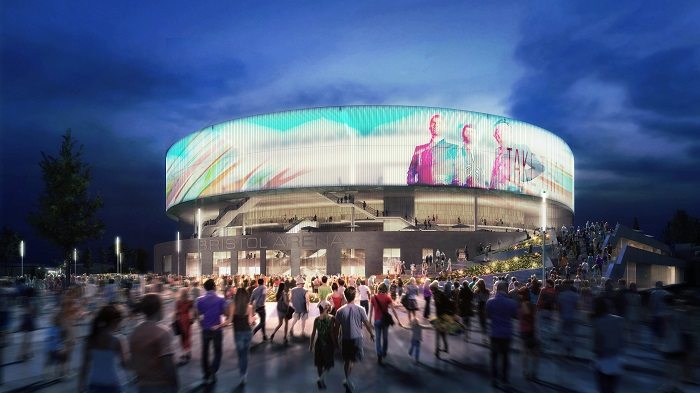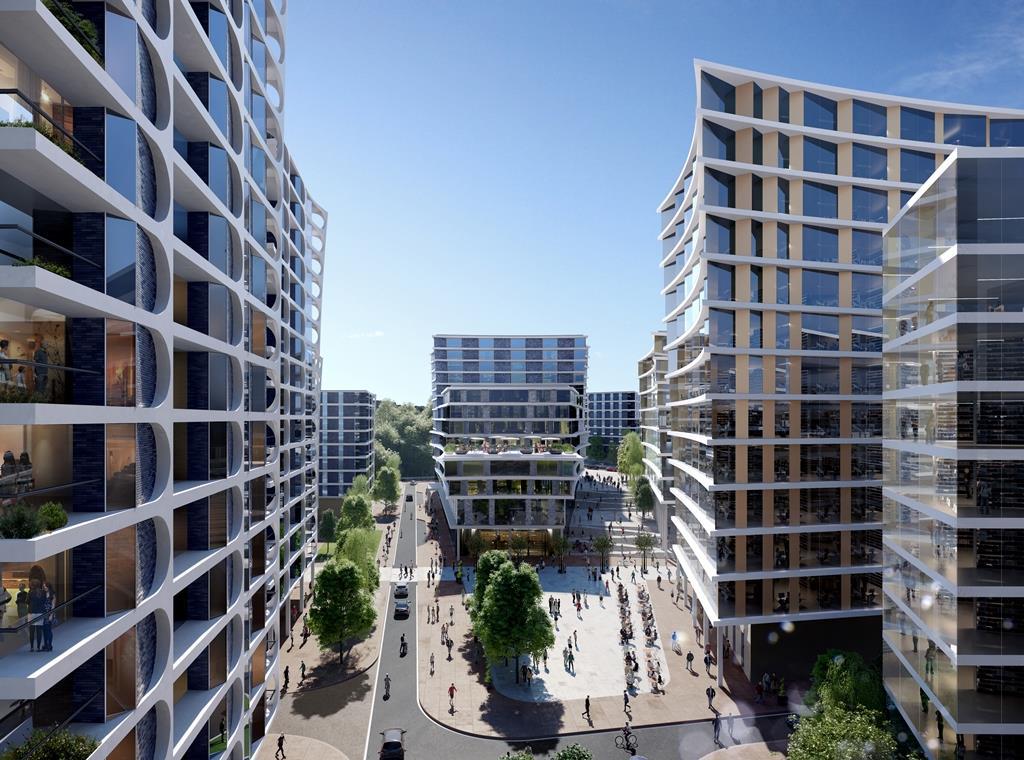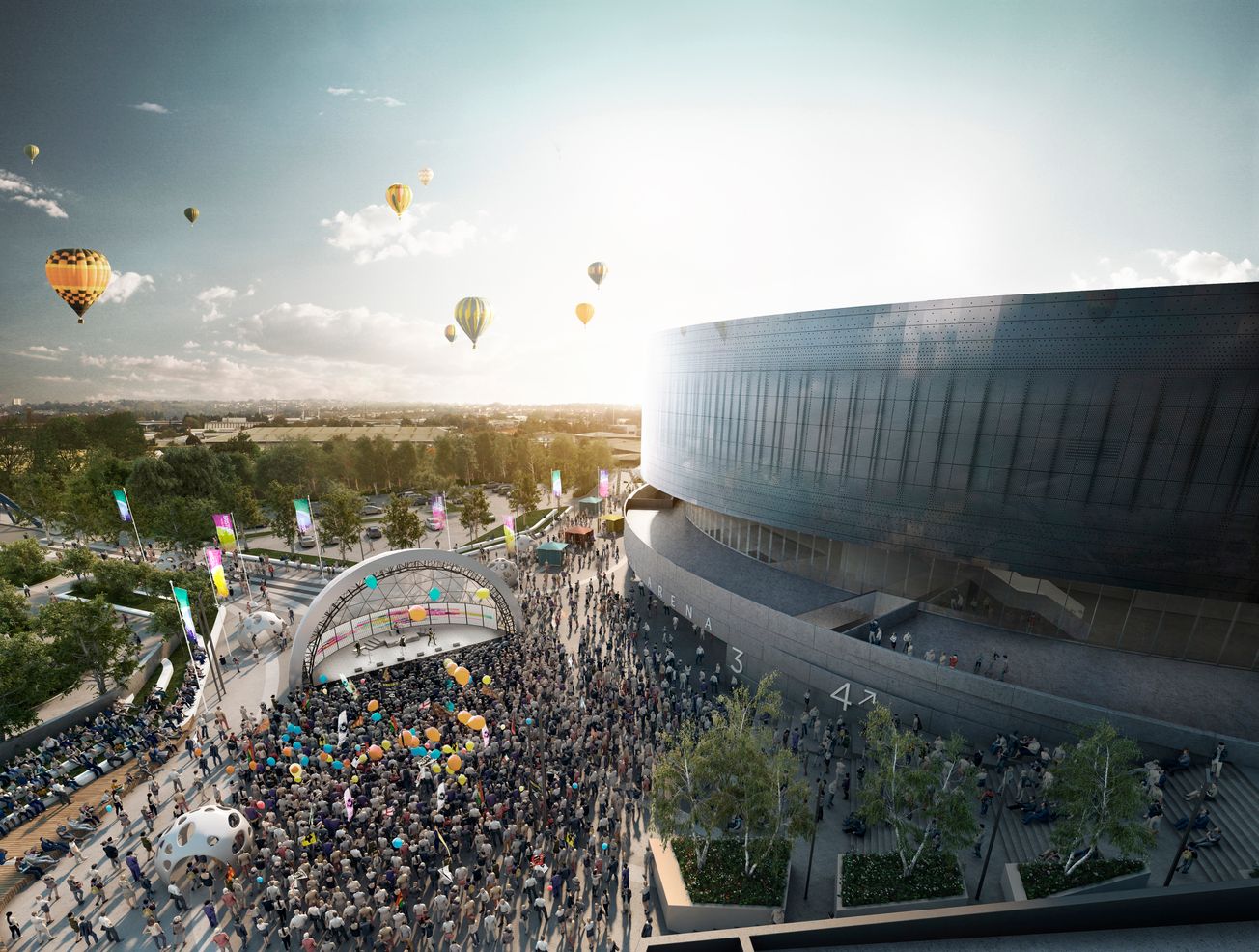Deputy Features Editor Tom Taylor investigates developments surrounding the Bristol arena
In July, Epigram reported on Bristol University’s new £300 million enterprise campus which is set to be opened in time for the 2021/22 academic year. The campus, which includes student accommodation provided by Campus Living Villages and Equitix, is currently being built in Temple Quarter.
This is an area of Bristol surrounding Temple Meads Railway Station which was given £750m in 2004 for rejuvenation under the supervision of the now defunct South West Regional Development Agency.
Over a decade and millions of pounds of investment later, the Temple Quarter area now boasts a Bristol University, Council and Local Enterprise Partnership collaborative enterprise hub, a low tax Enterprise Zone, Temple Studios and a host of other projects planned for the future.
Temple Quarter’s impressive plans, however, no longer include a 12,000 capacity multi-purpose entertainment arena. This is a story which has been a thorn in the side of Bristol City Council for nearly two decades and continues to be a contentious issue in Bristol politics today.

Artist’s impression of the proposed arena (Credits: Populous)
In 2003, plans for a multi-purpose entertainment arena were unveiled as a joint project between Bristol City Council and the South West Regional Development Agency. Land at the Temple Meads diesel depot was purchased and cleared at a joint cost of around £13m. The arena was to be opened in 2008 to coincide with Bristol’s ultimately unsuccessful bid to become the European City of Culture.
In late 2007, faced with a £40m funding gap and despite receiving a £14.2m cash injection from the SWRDA, plans for an arena were scrapped.
In January 2017, Bristol Mayor Marvin Rees predicted the arena would be open by autumn 2020
Having already spent millions preparing the proposed Temple Meads site, Bristol City Council were not prepared to abandon the idea completely and, in 2012, a £90m arena was back on agenda. With £53m funding from central government’s City Deal fund, £250,000 from council reserves and significant financial support from neighbouring councils, the development of an entertainment arena seemed to be in motion once again, at least on paper.
The central government body, The Homes and Communities Agency, transferred the Arena Island land to Bristol City Council in 2015 along with £5.425m of funding from the Department of Communities and Local Government.
In April 2016, plans for Bristol arena and a surrounding Arena Island, including a public plaza, housing and business developments, were approved. SMG Europe, the UK’s largest arena operator, agreed to manage the proposed 12,000 capacity venue for a 25 year period.

Artists impression of the alternative development at Temple Meads (Credits: Legal and General)
But the opening date of the arena, originally planned to be 2017, was delayed time and time again. In January 2017, Bristol Mayor Marvin Rees predicted the arena would be open by autumn 2020. Building contractor Bouygues UK left the project around this time due to disagreement with the Council on a proposed price.
In November, plans for an arena were once again suspended whilst a ‘value-for-money’ review was carried out by KPMG on behalf of the Council.
Meanwhile, Mayor Rees considered a proposal by the Malaysian construction conglomerate YTL to fund and deliver a 16,000 capacity arena within the Brabazon Hangar in Filton, four miles from Bristol City Centre.
Rees had entered into discussion with YTL whilst in Kuala Lumpar in late 2017. Although this meeting was not necessarily about the arena, YTL had recently acquired the disused Filton airfield, including the hangar, and plan to use it for the development of over 2,600 new homes, 3 schools and high tech commercial units. Rees said that he was ‘delighted to have the chance to show business leaders from China, the US and around the world the exciting prospects on offer here in Bristol.’
The consideration of Filton caused outrage amongst some Bristolians, including former Bristol Mayor George Ferguson who called the proposition a ‘lunatic proposal’ in an letter to the Bristol Post.
It’s evident that mayor @MarvinJRees decision to abandon #BristolArena is driven out of personal resentment... #ArenaIsland was acquired for the benefit of the people of #Bristol who have been cheated of what would have been one of the best venues in Europe @bristolarenal @bbcrb
— People & Cities (@GeorgeFergusonx) September 5, 2018
A Bristol City Council spokesmen said: ‘We’ve been open about the need to look at all of the evidence and consider all ideas as we reach a recommendation about how to use our Temple Quarter site. An essential part of this is having a detailed understanding of YTL’s proposals at FIlton.’
The Filton option would require public sector funding for infrastructure works estimated to be between £10m and £20m. The Temple Meads arena proposition would require an estimated £173m of public sector investment.
The spokesmen added that ‘Business meetings, discussion about draft documents, using internal ‘advocates’ for both arena cases and providing information and advice are normal activities for these kinds of proposals … it should not be mistaken for showing a specific proposal favour or for having made a decision.'
Bristol City Council’s Cabinet decided that the Temple Meads site would not be used for an arena
The ‘value-for-money’ report found that the proposed arena at Temple Meads would cost £33m more than the approved budget of £123m and that the Filton option would be cheaper. Council officers recommended that the Temple Meads area be used for an alternative development scheme which could include ‘a bespoke conference centre and a four or five star hotel, commercial space with supporting retail and residential homes for city centre living, including affordable homes.’
Read my speech to cabinet on the #BristolArenahttps://t.co/vP7Qmyfxgj
— Marvin Rees (@MarvinJRees) September 5, 2018
Cut through the noise and read the facts. I respect taxpayer’s money as real money. By using an evidence base rather than political opportunism, my decision will deliver the best outcome for all of #Bristol pic.twitter.com/3yLfB7xNNZ
On the 3rd of September, an ‘extraordinary’ full council meeting was held to vote on a motion which argued that the best site for Bristol’s Arena, for the benefit of Bristol as a whole, was Temple Island in the centre of Bristol and that the decision taker should be guided by the vote at the meeting’. The vote passed with 50 votes for and 0 against with Mayor Rees voting for the proposal.
A day later, Bristol City Council’s Cabinet decided that the Temple Meads site would not be used for an arena and would instead be used for mixed development. Bristol City Council have confirmed that ‘no decisions have been made about an alternative arena proposal, nor has a planning application been submitted for formal consideration by Bristol City Council.’
In a speech to Cabinet on the 4th of September, ahead of the decision on the arena, Mayor Rees defended his position arguing that ‘the most outspoken critics are those that have failed and of course, my political opponents who just see an opportunity.’ Rees pointed out that during his predecessor’s time as Mayor, the cost of building an arena was ‘£75 million more than his agreed budget.’ The £150million of debt, Rees argues, is to much of a risk and that ‘transferring all the risk to the private sector and away from the tax payer … is the best course of action.’
The Council is looking to work with British financial company Legal and General on an alternative scheme for the Temple Meads site.
Bristol #Arena update. Along with 4 other councillors Ihave ‘called in’ the Mayor’s decision with regard to ending arena project at Temple Meads. The decision will now be looked at by scrutiny. Hope the Mayor can use this time to meet with Harvey Goldsmith and @FearStephen
— tim kent (@cllrtimkent) September 11, 2018
Today Lib Dem Councillor Tim Kent announced on Twitter that ‘along with four other councillors’, he has ‘called in’ Mayor Rees’ decision to scrap the Temple Meads arena plan. This means that the decision will be scrutinised by a council committee at a later date.
Mayor Rees remains ‘committed to delivering an arena for Bristol’ and the saga continues to develop.
Featured image: Artist’s impression of the proposed arena (Credits: Populous)








